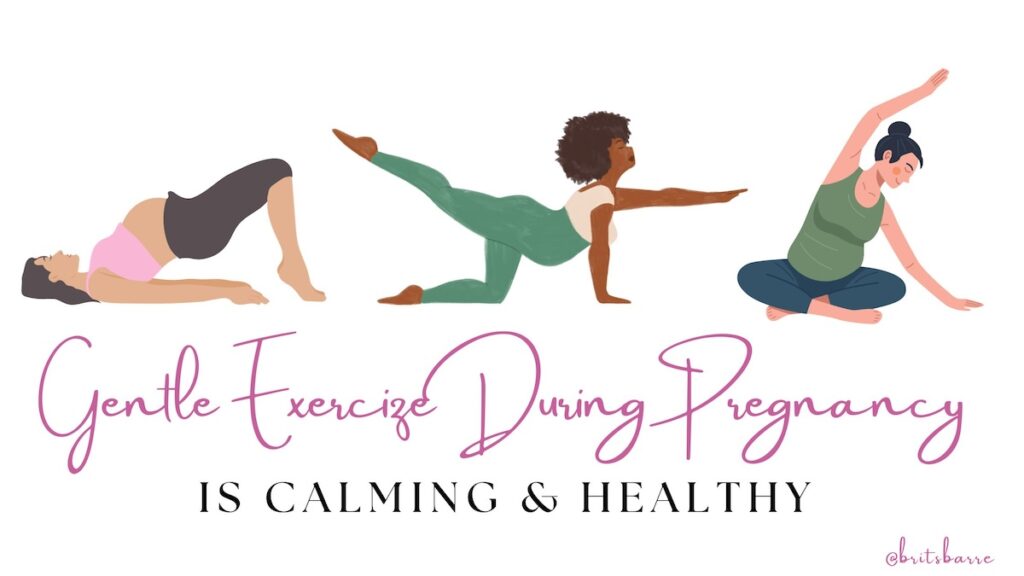Pregnancy is a transformative journey filled with both joy and challenges. Among the many aspects of pregnancy, maintaining a healthy lifestyle, including regular exercise, often weighs heavily on expectant mothers’ minds. The pressure to stay active during pregnancy and having a hard time of it can lead to feelings of guilt when circumstances make it difficult to exercise as usual. In this article, we explore the common experience of feeling guilty about not exercising during pregnancy and offer strategies to cope with this emotional burden.
Understanding the Expectations
The importance of exercise during pregnancy is well-documented. Regular physical activity can help manage weight gain, improve mood, reduce discomfort, and prepare the body for labor and postpartum recovery. Medical professionals often encourage pregnant women to engage in safe and appropriate exercise routines to reap these benefits.
However, not every pregnancy is the same, and there are various reasons why some women may find it challenging to exercise regularly during this period. These reasons include:
- Medical Concerns: Some pregnancies have medical conditions or complications restricting exercise. Conditions like placenta previa, preeclampsia, or a history of preterm labor may necessitate reduced physical activity or complete bed rest.
- Fatigue and Discomfort: Pregnancy often brings fatigue and discomfort, particularly during the first and third trimesters. These feelings can make it difficult to summon the energy and motivation for exercise.
- Work and Family Obligations: Many expectant mothers have full-time jobs and families to care for. Balancing work, childcare, household responsibilities, and self-care can leave little time or energy for structured exercise routines.
- Mental Health Challenges: Pregnancy can also affect mental health, leading to stress, anxiety, or depression. These emotional challenges can make it challenging to focus on physical fitness.
The Weight of Feeling Guilty About Not Exercising During Pregnancy
Despite the legitimate reasons for not exercising, feeling guilty about not exercising during pregnancy is something many women find themselves grappling with. This guilt often stems from societal pressure and well-meaning advice from friends and family that can be perceived as judgmental. Expectant mothers may worry that they are doing harm to their unborn child or failing to meet societal expectations.
Guilt about not exercising during pregnancy can manifest in various ways:
- Comparing to Others: Seeing other pregnant women engaging in vigorous exercise routines on social media or the community can lead to unfavorable comparisons and feelings of inadequacy.
- Self-Criticism: Internalized messages about the importance of exercise can lead to self-criticism and negative self-talk. Women may blame themselves for not doing more to stay active.
- Fear of Judgment: The fear of being judged by healthcare providers, friends, family, or even strangers can intensify feelings of guilt.
- Worry About Health Outcomes: Concerns about the impact of inactivity on the baby’s health or the risk of excessive weight gain may add to the emotional burden.
Coping with Guilt
It’s essential to recognize that feeling guilty about not exercising during pregnancy is a common emotional response, but it doesn’t have to define your experience. There are constructive ways to cope with these feelings:
- Communicate with Healthcare Providers: If you have valid medical reasons for not exercising during pregnancy, discuss them openly with your healthcare provider. They can provide reassurance and guidance on managing your unique situation. You may find solutions or guidance for the right exercise.
- Self-Compassion: Practice self-compassion and remind yourself that pregnancy is a time of significant change and adjustment. Be kind to yourself and acknowledge the challenges you are facing.
- Set Realistic Expectations: Adjust your expectations regarding exercise during pregnancy. Understand that it’s okay if your activity level differs from what you initially planned or what other pregnant women are doing.
- Find Alternative Ways to Stay Active: Even if you can’t engage in traditional exercise routines, look for ways to stay active daily. Gentle activities like walking, swimming, or barre can offer benefits without excessive strain and feel good, too.
- Seek Support: Share your feelings with a supportive partner, friends, or a therapist who can provide understanding and encouragement. Many women have experienced similar emotions during pregnancy and can offer valuable insights.
- Prioritize Mental Health: Focus on your mental well-being. Managing stress and anxiety is essential during pregnancy, and activities like meditation or deep breathing exercises can help.
- Educate Yourself: Learn about the diverse experiences of pregnancy. Not all expectant mothers can or should maintain rigorous exercise routines throughout pregnancy, and it’s important to know that your situation is valid. Options may open up.

The Bottom Line
Pregnancy is a highly individual journey, and no two experiences are the same. While overcoming exercise guilt benefits many expectant mothers, it’s crucial to recognize that there are legitimate reasons why some women may not be able to exercise during this time or need to limit the type of exercise they do. The emotional burden of guilt for not exercising during pregnancy is a challenge, but it can be managed with self-compassion, understanding, and support.
Remember that caring for yourself and your growing baby is the most important priority during pregnancy. If prenatal physical activity is not feasible or safe for you, focus on maintaining a healthy lifestyle, such as eating well, staying hydrated, getting adequate rest, and seeking emotional support when needed.
Ultimately, the well-being of both you and your baby truly matters, and self-compassion should always take precedence over guilt for not exercising and societal expectations. Embrace the uniqueness of your pregnancy journey and do what’s best for you and your growing family.
Barre exercise and stretching can be very gentle. Talk to your healthcare provider if you are interested in prenatal barre classes. Try a complimentary week of prenatal-friendly barre classes! To discuss private sessions, contact Brit here.
